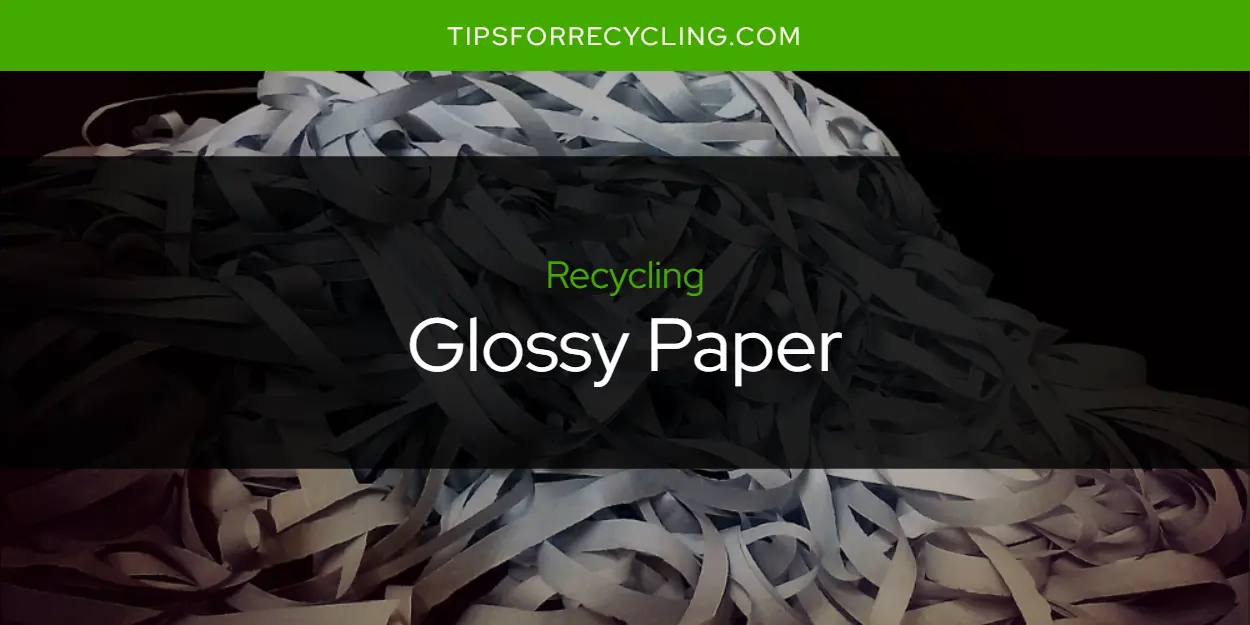Can You Recycle Glossy Paper?

With an ever-growing environmental crisis, recycling has become more important than ever before. Glossy paper, such as magazines and catalogs, is one of the items that can be recycled, though not all centers accept glossy paper due to its complexity. However, if you can find a center that does accept glossy paper, it’ll help reduce landfill waste and your carbon footprint.
See the below map for locations where you can recycle glossy paper.
Unfortunately, there isn’t much money to be made from recycling glossy papers. This is due to the extra steps needed in order to recycle them properly. The process requires much more time and effort than traditional recycling methods do, making it difficult for recyclers to turnover a profit from collecting glossies.
Similarly, see if you can recycle glossy calendars.
Most types of glossy paper are accepted at most recycling centers, including holiday catalogs and magazines with shiny covers or inserts. However, some centers may not accept wax-coated or laminated papers as they require special equipment for proper disposal. It’s best to contact your local recycling center prior to looking into what type of glossy paper they will accept.
Similarly, see if you can recycle glossy cardboard.
The main benefit of recycling glossy paper is reducing the amount of landfill waste that ends up in our landfills and oceans. By choosing to recycle glossy materials instead of throwing them away, we can contribute significantly towards keeping our planet healthy and clean for years to come! Additionally, when applicable, some recyclers offer rewards for those who choose to recycle their used materials instead of trashing them - making it an even better option for conscientious citizens everywhere!
Similarly, see if you can recycle glossy magazines.
The biggest challenge with recycling glossy papers is that the process has many steps which makes it time-consuming and costly - making it difficult for recyclers to turn a profit from collecting glossies alone. Additionally, if the papers aren't sorted properly beforehand then they can contaminate other non-glossy materials and make them unrecyclable too! This means that sorting through batches of glossy materials is essential before sending them off for reuse - something which requires extra effort on behalf of those choosing to recycle these items in the first place!
Similarly, see if you can recycle colored paper.
One way to reduce waste from glossy papers is by opting out altogether! Many companies now allow customers to opt out of receiving certain catalogs or mailings so that they don’t have any unwanted material cluttering up their house or business office space unnecessarily. Alternatively, reusing these materials for crafts or donating them can also help reduce waste without contributing further resources towards creating new ones from scratch!
Similarly, see if you can recycle newspaper.
For those who are unable or unwilling to recycle their glossy materials there are several alternatives available as well! One popular option is composting which breaks down organic material such as food scraps and offers nutrients back into soil; another option includes using things like colored construction paper or cardboard boxes as substitutes for conventional wrapping gifts instead! Finally donating used books and magazines can also be an excellent way helping repurpose old materials while still being mindful about our impact on the environment overall!